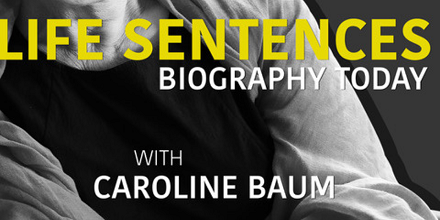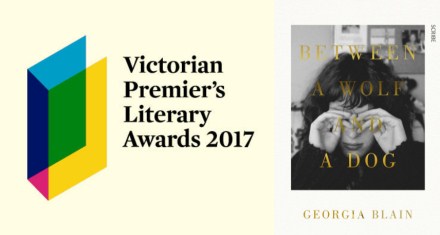Booktopia’s Editorial Director Caroline Baum writes about her whirlwind trip to the legendary Jaipur Writers Festival
———————–
Every winter writers’ festival needs a chai wallah: a turbanned young man dispensing spicy hot milky cardamom and ginger flavoured tea served in terracotta cups (in the spirit of PM Narendra Modi’s efforts to clean up India, there is no plastic at this festival) before sessions get underway. The air in Jaipur is dry and chilly in January, though the day warms up soon enough under the billowing folds of the block printed canopies of the tents at Diggi Palace.
The other reason for the tea is to calm you after the trauma of the traffic jam that causes a daily surge in your blood pressure. A chaotic entanglement and near collision of tuk tuks, scooters, cars, and the odd elephant or horse (because it is wedding season and these are the transport of choice for grooms). The machines make more noise than a jungle full of wildlife, as everyone fights for lane supremacy. It is incredibly enervating, but one of the strokes of brilliance of the festival put together by William Dalrymple and Sanjoy Roy is a program of live music to kick off proceedings which restores everyone’s mood to a serene level.

Margaret Atwood delivers the keynote address
Each morning Sanjoy stands like a sentinel at the flower garlanded fountain at the centre of the venue, his long silver hair sitting smoothly below his shoulders, conferring on him the impression of a Sergeant Pepper album cover extra, greeting all and sundry with hands clasped together in the traditional Namaste or a hug. This gesture of welcome and hospitality is hard to beat. How the hell is he not running around in a flurry of last minute crisis management? When I ask he smiles enigmatically and says ‘ My job is done. Now all I have to do is stay out of jail,’ presumably referring to last minute litigation which put the festival’s access to the site in doubt till the very last minute. This is India, after all.
Diggi Palace is a vast site embracing several venues. The first festival event nine years ago which attracted an audience of fourteen people took place in the saffron painted Durbar Hall. Today everyone loves saying they are going to something at the Google Mughal tent because it trips off the tongue so pleasingly, but the superstar action is mostly on the front lawn under softly gathered folds of blue and white cotton. Capacity crowds meant standing room only for Margaret Atwood, Colm Toibin, Stephen Fry, and, biggest of all, French economist Thomas Piketty (Capital in the Twenty-First Century), who was the first and last drawcard on one day, talking about inequality. (The only person who may have drawn a bigger crowd in the festival’s exuberant history is Oprah Winfrey, who caused a near stampede and pleased the Delhi ladies in attendance by wearing a sari, a gesture Monsieur Piketty could not compete with.)
And talking of inequality, there is a terrific rule at the festival: everyone is treated the same, without exception. No matter whether you are a writer or a delegate (ie you paid to eat in an exclusive area and have access to slightly better loos) or a sponsor, or even a festival director, seats are allocated on a first come first served basis and you cannot hold them for other people (when Delhi princesses do this by sending their drivers or retainers to sit in the best seats, appearing in all their finery at a later hour for some celebrity writer, disapproval ruffles the crowd like a foul smelling breeze.)

Stephen Fry
Lunch is a logistical miracle. If you are one of the hundreds of delegates, you have access to another canopied area and a magnificent buffet of Indian dishes, all in plentiful supply. There is no need to queue and nothing runs out. An oven bakes at full tilt, its glowing wood-fired furnace producing parathas, naans and rotis. Pestles grind herbs for freshly made chutneys and sambals of mint and coriander. Desert is churned rose petal ice cream. You sit wherever you like and find yourself having intense conversations with delegates who may be writers, publishers, or passionate readers from Peshawar, Mumbai, Dubai, Toronto and Melbourne. The atmosphere is one of immediate congeniality and vigourous discussion. The place hums like a hive of bookish bees.
As for the one hundred and seventy five sessions running in parallel at six venues (where the size of the crowds over the weekend meant you had to allow fifteen minutes to get from one tent to another; with a surprising strong male presence Australian festivals would kill for and, last year, an average attendance age of 21), the breadth and calibre of writers and the careful curation of sessions is a veritable banquet of the best and emerging talent from across India and the world. Choosing is not easy.
In a session on the British art of biography the quartet assembled was unbeatable: Hannah Rothschild talking about her eccentric great aunt Panonica’s relationship with Thelonious Monk in The Baroness; Ben McIntyre discussing A Spy Among Friends, his new book on Kim Philby (he had audiences spellbound at several sessions); Victoria Glendinning being generous and funny about her new biography of the British founder of modern Singapore, Stanford Thomas Raffles, with Labour MP Tristram Hunt bringing Friedrich Engels to life in Marx’s General.
Other delegates went into raptures about William Dalrymple and Alexander McCall Smith’s raconteur double act, outdoing each other with funny stories like seasoned pros; there was a great fizz around Colm Toibin talking with Armistead Maupin about all things gay with Indian writer R. Raj Rao. On Monday the crowds thinned for a day of more politically focussed discussion of which highlights were a session called From Abu Ghraib to Guantanamo with Laleh Khallil (Time in the Shadows) and Molly Crabapple, Niall Ferguson on Henry Kissinger, and a very measured debate on freedom of speech with seven major Indian writers. Colin Thubron was there to talk travel while Vanity Fair writers Alex Shoumatoff and Marie Brenner analysed the renaissance of long form journalism. Atul Gawande moved audiences to tears putting a very personal Indian spin on his bestselling Being Mortal, with his mother sitting in the front row of his sessions while he shared his latest research about healthcare needs in India (where the fastest growing sector of public health is nursing homes, bucking the traditional trend of families living inter-generationally and the young looking after the elderly). Marlon James’s red leather jacket added to his rock star charisma as he held audiences spellbound talking about A Brief History of Seven Killings.

Marlon James
Only one session failed to get to the heart of the matter with too many stars squeezed on to the stage: the cleverly named Selfie featured discussions on the memoir with Stephen Fry, Helen Macdonald, Brigid Keenan, Christina Lamb and Esther Freud – a veritable galaxy, but with insufficient time to shine. Photographers Don McCullin and Steve McCurry added another layer to the program with presentations that emphasized the visual. Poetry and ancient texts were given prime time centre stage slots. Shakespeare, Oscar Wilde, Gandhi and Pakistan got their moment in the sun. Bollywood made a glamorous appearance. The bookshop (superbly stocked independent Full Circle restored to its traditional role after last year’s outcry when the concession was given to Amazon) did a roaring trade. Rumour has it that attendances reached somewhere near a quarter of a million (including sizeable school and student contingents, with many questions being prefaced by the words ‘I am doing my PhD on your work ….’)
There were swank parties off site at palatial hotels and private homes, and time for short forays into the old city to shop for gemstones and textiles and visit the purdah chambers of the Wind Palace and the staggering Jantar Mantar 17th century observatory. But you didn’t need an observatory to locate the stars during the day: their light shone clear and bright.
Caroline Baum travelled to the Jaipur Literature Festival with the assistance of India Tourism and Marieke’s Art of Living (www.mariekesartofliving.com).
About the Contributor
Andrew Cattanach
Andrew Cattanach is a regular contributor to The Booktopia Blog. He has been shortlisted for The Age Short Story Prize and was named a finalist for the 2015 Young Bookseller of the Year Award. He enjoys reading, writing and sleeping, though finds it difficult to do them all at once.
Follow Andrew: Twitter





 Caroline Baum: How a procrasti-project became a podcast
Caroline Baum: How a procrasti-project became a podcast  Best of 2017: Biography and True Stories
Best of 2017: Biography and True Stories  REVIEW: Between a Wolf and a Dog by Georgia Blain | Prize for Fiction Winner, 2017 Victorian Premier’s Literary Awards
REVIEW: Between a Wolf and a Dog by Georgia Blain | Prize for Fiction Winner, 2017 Victorian Premier’s Literary Awards
Comments
No comments